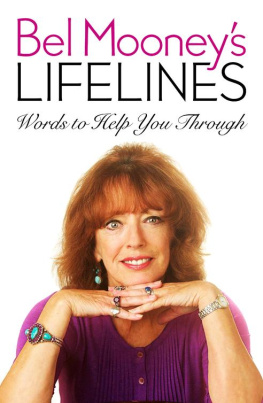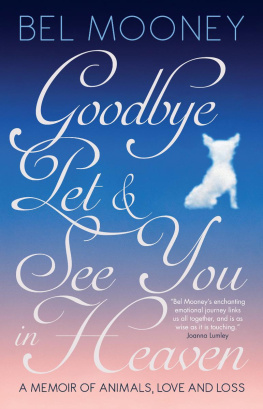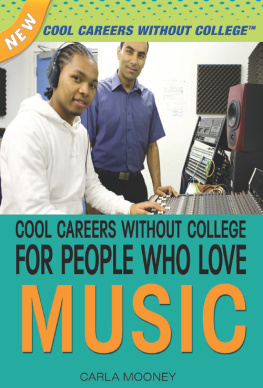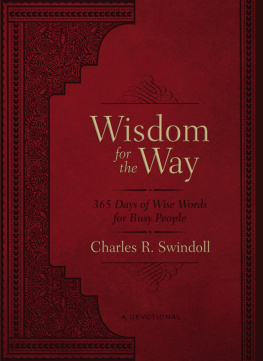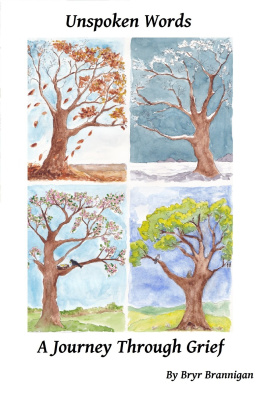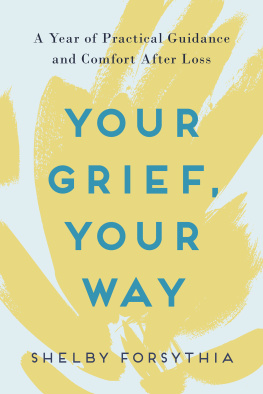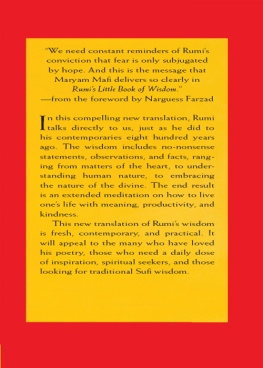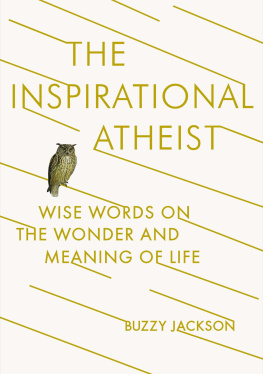An enchanting book heart-breaking, but also heart-making.
JOANNA LUMLEY
A moving and honest story of the end of a marriage rich, rare and engrossing.
ANTONIA FRASER
Bel Mooney is a courageous woman with an unbelievably generous heart.
RICHARD HOLLOWAY, AUTHOR AND FORMER BISHOP OF EDINBURGH
I could not put this book down.
VANESSA FELTZ
This dignified, generous, loving portrayal of the break-up of a long marriage is one many people will empathise with
TRISHA ASHLEY, NOVELIST
In this time of confessional writing I have never read such an honest, evocative account The way Bel Mooney describes the ageing process and coming to terms with what has happened in order to move on feels so relevant.
JOANNE GOOD, ACTRESS AND BBC RADIO PRESENTER
A profound disquisition Buried in this novel is the stuff of greatness.
STEPHEN GLOVER, DAILY TELEGRAPH
An impressive return to fiction. The ease with which Mooney handles both big ideas and smaller intimacies makes you hope she wont leave it so long next time.
MELISSA KATSOULIS, THE TIMES
Deep questions, and Mooney is not afraid to tackle them head-on. She writes sensitively and tenderly a remarkably good novelist.
GOOD HOUSEKEEPING
FROM DAILY MAIL READERS:
Thanks for all your advice in the dark days when your message of hope shone through.
PAUL
Each week when I read your column I am struck by your humanity, wisdom and depth of understanding it is genuinely insightful and heartening to read the advice you give to those who are struggling.
SUE
Your words were like a balm an epiphany to me, giving me peace of mind after nearly forty years. In short, a miracle.
LOUISA
I want you to know how grateful I am. Your words gave me courage and for the first time in twenty-two years I feel free.
DAISY
Your words are so full of wisdom and can only enhance and empower whoever takes the time to read them.
GEORGIE
Your words have helped me, changed my mind and made me a better person. You feel like my Fairy Godmother!
SUSAN
Your sensitive assessment of the situation has provided a new way of looking at the situation, and well try to remember your good advice.
BILL AND SUE
As a 24-year-old whos had a problem with low self-esteem and thinking Im in love with someone when I wasnt, I cant tell you how great it was to read your words. Honestly, I just wanted to say thank you.
SARAH
For Sandra Parsons, without whom this would not have happened
Loveless hearts shall love tomorrow, hearts that have loved shall love anew,
Spring is young now, spring is singing, in the spring the world first grew.
Anonymous Latin (c. fourth century)
if you picture other people like you, you will no longer be alone. And when you share, you see that your own sorrow is not so big or special. You are only another person feeling sad, and soon it will pass and you will be another person feeling happy.
From The Love Song of Miss Queenie Hennessy by Rachel Joyce
After the final No there comes a Yes,
And on that Yes the future of the world depends.
Wallace Stevens
CONTENTS
BEGINNINGS
I T W AS NEVER a part of my life plan to write a newspaper advice column. That fact just serves to prove what I often say to readers if you arent willing to open yourself up to the unexpected, you could miss out being (in Wordsworths phrase) surprised by joy. Thats how it was with me, in 2005, when my first advice column appeared in The Times. Despite initial doubts, I soon realised this was going to be a new vocation. I had been afraid that I couldnt do it, that it would be depressing, that I would become imprisoned by the problems of others. It also worried me that I might be accused of being unqualified even though its rather hard to define exactly what are the best qualifications for an agony aunt (a title I dislike, as it patronises all concerned). What does it take to give advice to perfect strangers?
Then I thought, OK Ive been cheated and mistreated (as the Everly Brothers sang) and bullied and insecure and lonely and bereaved. Ive behaved shamefully in the past but Ive also done things along the way that make me proud. A sinner and a saint yeah, thats about right.
Growing up, I became aware of painful family problems. Raised in a Liverpool council flat, I am lucky enough (as a baby boomer) to epitomise social mobility. I married young and had three children, one of whom was stillborn. I cared for my sick daughter for many years and spent more time in hospitals than I would wish on anyone. My long career has contained some bitter disappointments but I learned to put them in perspective. In middle age, I endured the sudden collapse of my very long marriage and had to rebuild my life. A second marriage has brought me more contentment than I could have imagined. Now, in my seventieth year, I face ageing and think about death perhaps more than I should. In my life Ive read a whole library of books, taken deep pleasure in art and music and interviewed countless people all of this confirming what I probably realised subliminally as a child: that human existence is complex, interesting, disappointing, frightening, puzzling, mundane and more full of quiet desperation than blazing joy.
After some thought, therefore, I realised I was as qualified as anybody to engage with the problems of others. A line in Virgils Aeneid sums up the thought: Familiar with grief, I learn to help the unhappy.
So, I began the new job. The Times column (called Life and Other Issues ) quickly established itself and at first the letters and emails often made me weep or sometimes exclaim aloud in fury. How could people be so petty, so cruel, so lacking in self-awareness? And how can a human being (the one who wrote that pitiful letter I held in my hand) sustain such soul-sapping misery? For years I had contributed features and comment to the paper (and indeed to most national papers and many magazines), yet a freelance journalist is rarely party to his or her readers private realities. You write your article, possibly get feedback (before the days of online comment, this wasnt common) then move on to the next assignment. But an advice columnist is quickly in there with readers. I found that, with the safety that comes from talking to a stranger, people would often open up to me more than perhaps to a friend or family member, disclosing extremely intimate information about their lives.
It wasnt long before I saw how the problems divided into categories. Listed in order of volume, they stack up like this:
On marriage from women.
On relationships from women.
On family problems from men and women.
On marriage and relationships from men.
On bereavement from men and women.
On just angst. Loneliness, a sense of pointlessness and the question: Why on earth are we living?
Letters also arrived about problems with work and friendships, but not nearly so many. Painstakingly, I chose different subjects each week to keep the page fresh, although it wont surprise you to hear that I could have easily written about bad and sad marriages and nothing else. At first, I felt overwhelmed by the misery and horribly responsible. How do you cope upon receiving a pitiful, handwritten letter in which the writer says theyre so miserable they want to end it all worse, when there is no address to write back to? It was extremely distressing. One thing that surprised me, however, was an odd, witchy sixth sense that led me to surmise this or that about the writer of a letter and incorporate those second guesses in a printed reply and then hear back from them: How did you know? Perhaps a literary training is just as useful as a counselling course for reading between the lines and weighing the import of specific words chosen.

